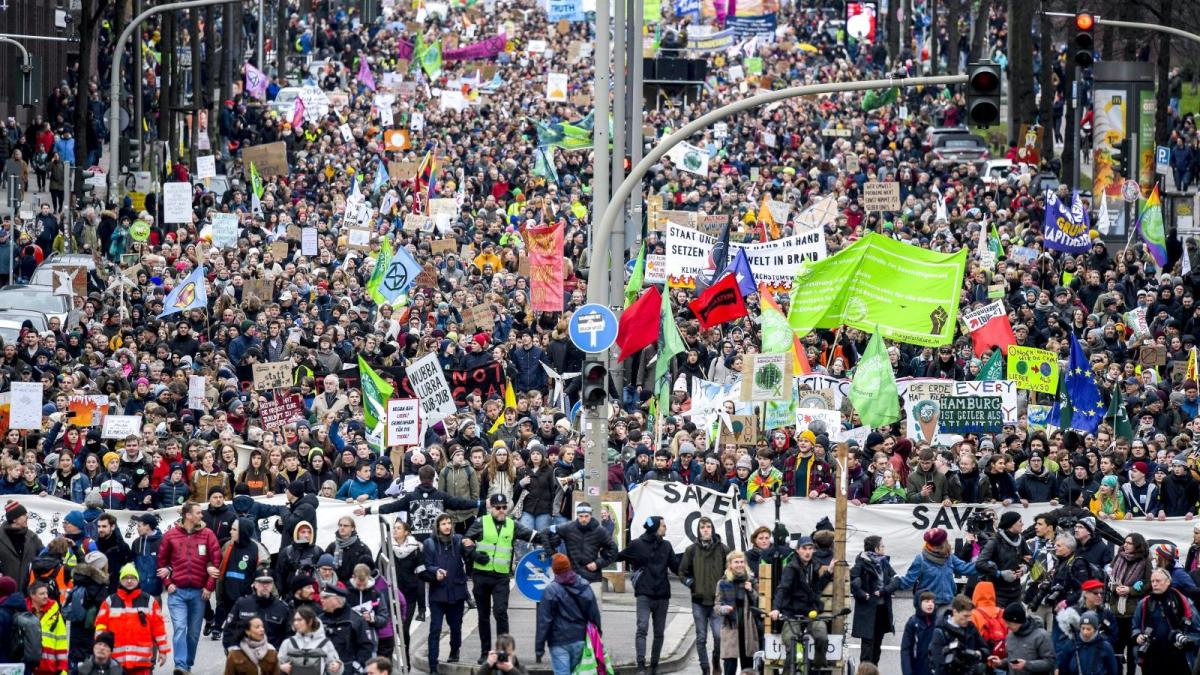This story was originally published by Yale Environment 360 and is reproduced here as part of the Climate Desk collaboration.
For more than a year, just about every Friday at noon, Invaliden Park in downtown Berlin was transformed into a vivacious, noisy, swarming hubbub with teenage speakers, bands, and live dance acts — as well as Germany’s top climate scientists — all sharing a makeshift stage and a microphone. Several thousand mostly school-age pupils waved banners and placards proclaiming “There is no Planet B,” “School Strike for Climate,” and “We’re on strike until you act!” Their chants against fossil fuels and for swift, decisive action on global warming echoed against the granite facades of the federal ministries for economy and transportation, both adjacent to the square.
The happening was the weekly “school strike” in Berlin of Fridays for Future (FFF), the climate crisis movement that began in 2018 with the Swedish teenager Greta Thunberg skipping school once a week to protest her country’s half-hearted response to climate change. The movement then ricocheted across the globe, mobilizing school-age young people — in wealthy countries as well as poor — ... Read more
